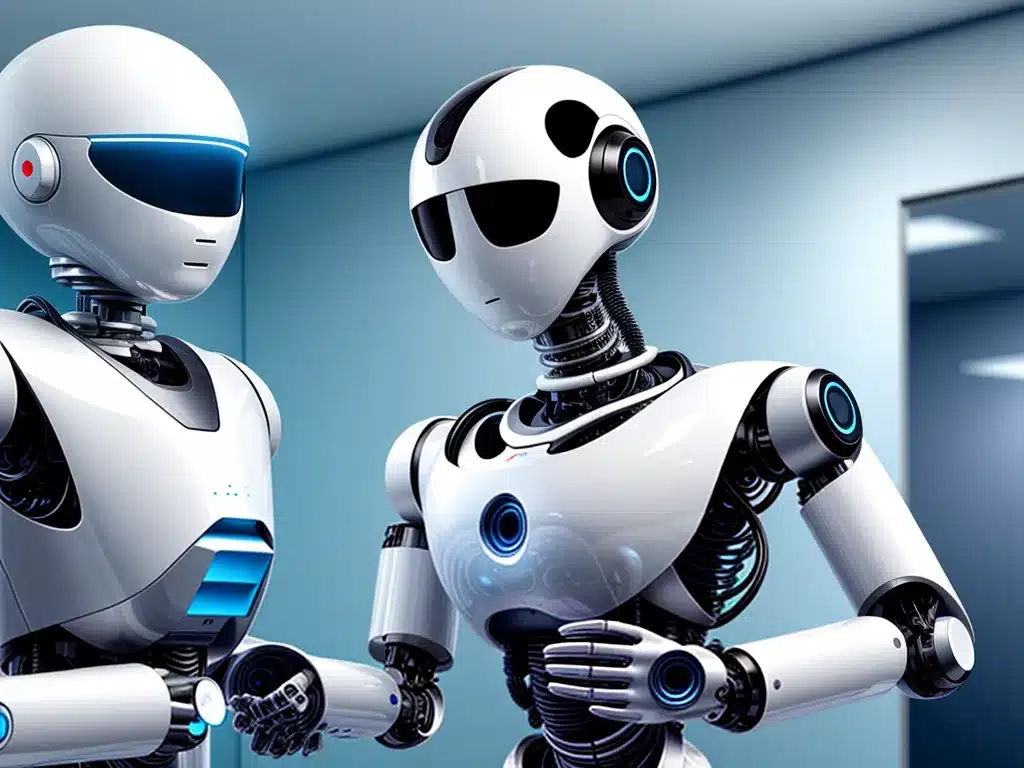
I believe that robotics will significantly transform healthcare in the 2020s by improving surgical procedures, enabling more personalized care, and increasing access to quality healthcare. Here is an in-depth look at how I envision robotics advancing healthcare this decade:
Automating Surgery and Improving Outcomes
Surgical robots like the da Vinci system are already allowing surgeons to perform minimally invasive procedures with greater precision, flexibility and control. In the 2020s, robotic surgery will become even more sophisticated with the integration of computer vision, haptics and artificial intelligence.
-
Robotic surgery will enable greater accuracy and safety when operating in tight spaces. Tiny robotic arms with micro-instruments can access hard-to-reach areas.
-
Integrated sensor data and AI analysis will guide surgeons during procedures and help avoid complications. For example, smart robots may use computer vision during surgery to identify anatomy and alert surgeons about potential risks.
-
Haptic feedback technology will allow surgeons to actually feel tissue and forces during procedures for more intuitive robotic control.
-
AI assistance will help surgeons personalize and optimize surgical plans based on a patient’s specific anatomy and needs.
With advanced surgical robots, I foresee improved outcomes for procedures such as tumor removal, organ transplantation, reconstructive surgery, and coronary artery bypass grafts. Robotic automation can reduce risks and speed up recovery times for patients.
Delivering More Personalized and Precision Care
In the 2020s, AI-powered robotics will enable more personalized and targeted treatments tailored to an individual’s genetics, lifestyle and medical data.
-
AI-assisted robotics will help doctors analyze patient information and create customized prevention and wellness plans. This can include recommendations on medication, diet, fitness and more based on a patient’s health profile.
-
Smart chatbots and virtual assistants will be able to provide patients with personalized guidance, feedback and coaching between office visits. This continuous digital care can help patients better adhere to treatment plans.
-
Robotics and sensors will facilitate remote patient monitoring and care. Devices can regularly check patient vitals and watch for any dangerous changes that require medical intervention.
-
Precision robotics will support minimally invasive procedures adapted to target illnesses and diseases at their source. For example, steerable catheter robots can deliver drugs directly to affected areas.
With personalized apps, data analysis and precision robotics, healthcare can become more proactive and preventive versus reactive. This will empower patients and ideally help address conditions before they escalate.
Expanding Access and Improving Care Quality
Healthcare robotics has the potential to greatly expand access to quality care, especially for underserved communities.
-
Mobile clinic robots and cart-like units outfitted with medical tools can travel to remote areas and bring basic care directly to patients. Patients in isolated communities wouldn’t need to find transportation and travel for hours to be seen by a doctor.
-
Telemedicine robots with two-way video chat can enable remote consultations and follow-up care. Specialists can virtually visit patients in any location.
-
AI chatbots and automated kiosks in local pharmacies, community centers, etc, can help address basic healthcare questions, recommend prevention measures and triage cases. This makes healthcare advice and guidance more conveniently accessible.
-
In hospitals and clinics, service robots will be able to automate mundane logistical tasks and free up more time for human providers to interact with patients.
With this technology infrastructure, we can bring quality healthcare and medical expertise to anyone, anywhere. Healthcare access won’t be limited by geography, mobility or ability to travel.
In summary, from transforming surgical care to delivering personalized treatments and expanding access, robotics and AI will be game-changing technologies for healthcare in the 2020s. These innovations can help save and improve lives around the world. But we must continue advancing and properly integrating robotics with human care and oversight to realize the full potential.












